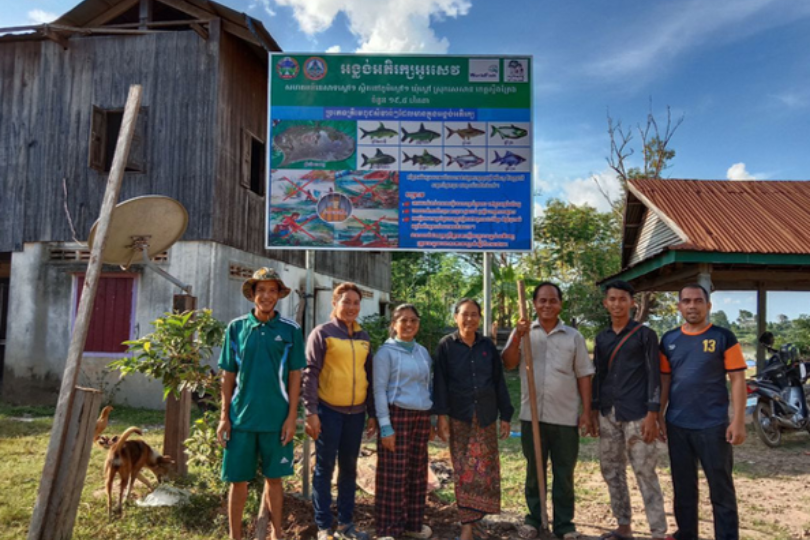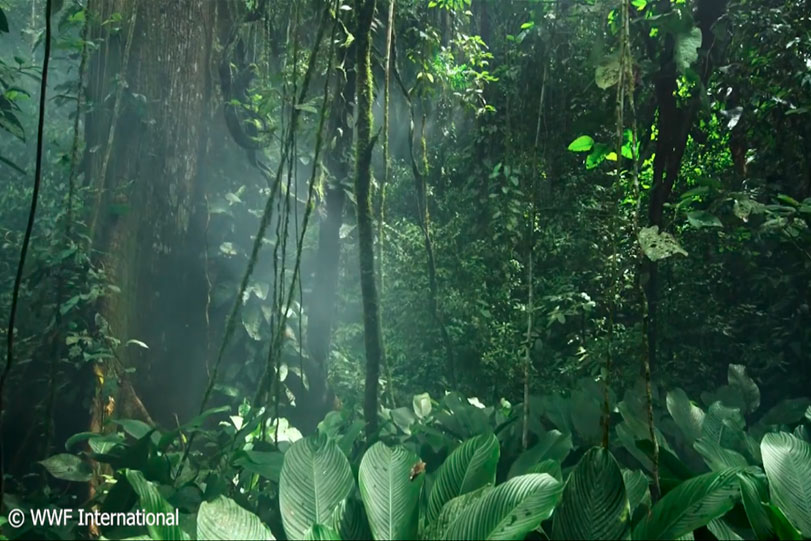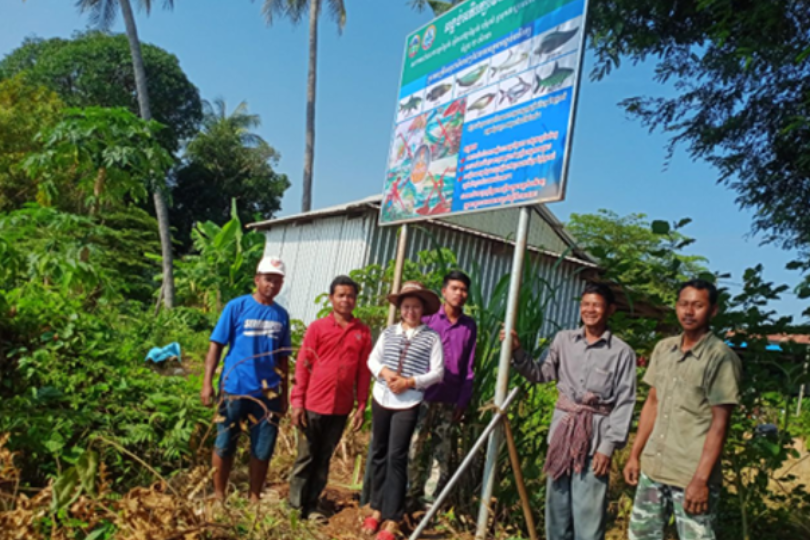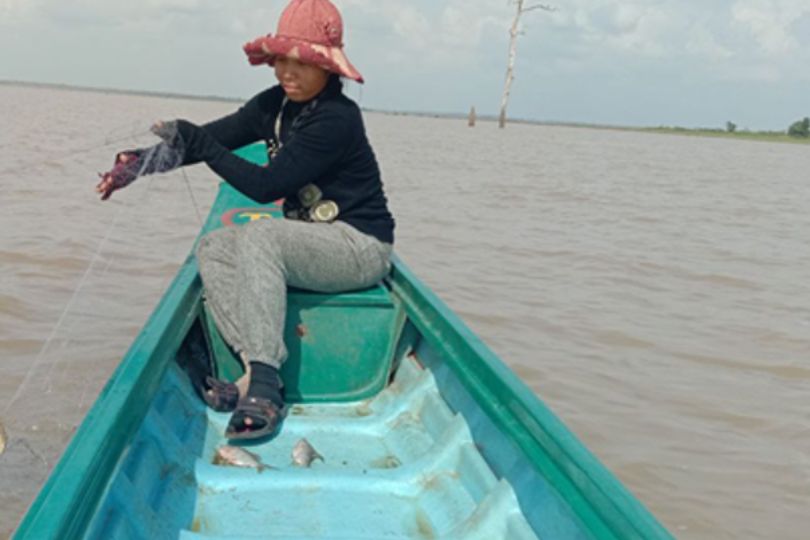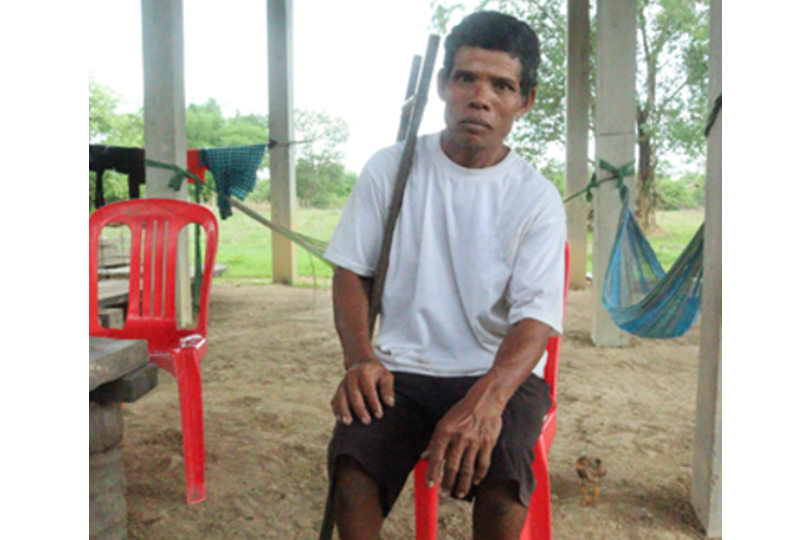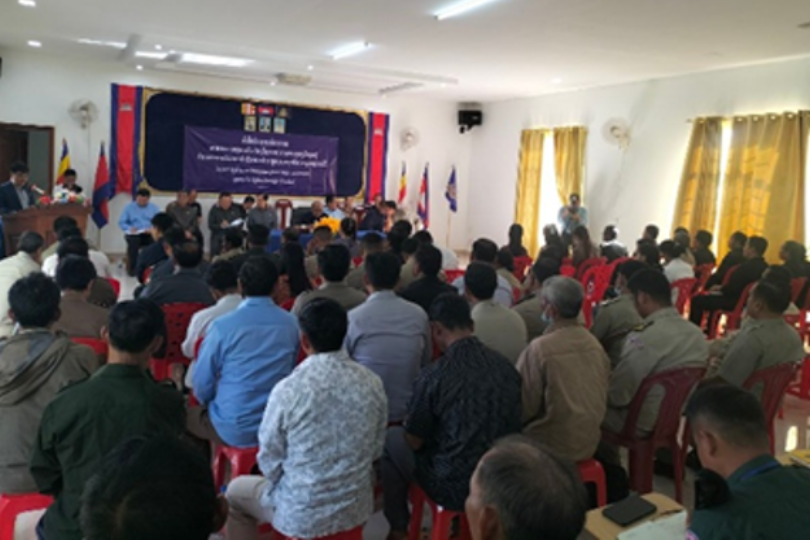In Koh Snaeng village, nestled along the Mekong River, 26-year-old fisherwoman Mrs. Korn Samdorn once lived quietly, her daily life shaped by the river’s rhythms. Like many women in her community, she had never participated in public discussions or development activities—until the My Village Organization (MVi) introduced a project grounded in Feminist Participatory Action Research (FPAR).
Initially hesitant, Mrs. Samdorn was invited to attend an FPAR workshop where she discovered the value of her lived experiences. “I never imagined my thoughts as a woman fisher could shape decisions. But the facilitators made me feel heard,” she recalled.
That experience sparked transformation. Mrs. Samdorn became an active member of the community research team, documenting changes in fish populations, water levels, and ecological trends. Group discussions with women and youth leaders revealed shared challenges—declining fish stocks, polluted waterways, and limited access to clean water. Together, they identified root causes and co-created solutions.
Through the project, Mrs. Samdorn gained the confidence to speak up at community meetings and engage with local authorities on water resource governance. “Before, I stayed silent. Now, I know my voice matters,” she said. She began sharing research findings at sub-national workshops in Kratie and Stung Treng, amplifying the concerns of women fishers across the region.
Through the project, Mrs. Samdorn gained the confidence to speak up at community meetings and engage with local authorities on water resource governance. “Before, I stayed silent. Now, I know my voice matters,” she said. She began sharing research findings at sub-national workshops in Kratie and Stung Treng, amplifying the concerns of women fishers across the region.
Mrs. Samdorn’s evolution—from isolated voice to respected advocate—reflects the transformative power of inclusive approaches like FPAR. By centering the perspectives of women, youth, and Indigenous Peoples, the initiative has not only strengthened local water governance but also sparked personal empowerment.
Her story serves as a testament to what’s possible when marginalized voices are invited to lead. From monitoring river changes to influencing policies, Mrs. Samdorn now helps shape a future where every woman’s perspective can guide sustainable water management.


